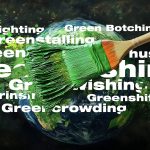Populations from Around the Globe are Building Revolutionary Waste Solutions—Why Not Your Business?
– July 11, 2021 –
Today is World Population Day! It’s a day that helps raise awareness on various issues impacting our planet and the people who occupy it. For example, one of the most daunting troubles facing the world is the mounting waste problem. It’s an ongoing concern that impairs public health, pollutes the environment, crowds landfills and threatens to consume countries in toxicity.
As we celebrate understanding in our ever-changing world during this annual event, let’s recognize the revolutionary waste solutions that are happening around the globe. Read on to see how these countries’ methods could help businesses like yours uncover ways to reap the economic and environmental benefits of collecting, recycling, and keeping waste out of landfills.
ECOBOT – Colombia’s Recycling Initiative
According to Rijkswaterstaat Environment (2020), Colombia’s municipalities produce about 32,000 tons of solid waste per day. Over 10,000 tons per day is generated from such big cities as Bogotá, Cali, Medellín and Barranquilla. To overcome its serious waste issues, the South American country introduced ECOBOT, a recycling and landfill diversion initiative that promotes the culture of recycling and waste care. It not only informs its citizens about the virtues of recycling but also is incentivizing and provides a rewards system for each recycled item collected.
How does it work? ECOBOT operates similarly to a vending machine. However, instead of feeding your money to collect a product, you insert your emptied item into the machine to collect a coupon. You receive one voucher per deposit, which can then be used at many supporting businesses, like clothing and grocery stores, restaurants, movie theaters and ride services. Who doesn’t like discounts?
Countries that Use Recycled Materials for Art and Travel Purposes
It’s common for building materials to be repurposed. However, have you heard of recycled materials such as plastic bottles, tires, and boxes being used to create roadways or amusement parks? Japan, Sweden, and Germany are just a few of the many countries that apply sustainability models to mobility, construction, and consumption.
One such example of turning trash into treasure happened in the Netherlands in 2018. The cities of Zwolle and Giethoorn created a bike path made of recycled plastics. Of course, plastics have been used to repave roads worldwide before—even a Californian company integrated plastics into road repaving. However, the Netherlands’ bike path marked the first time a road was made entirely of plastic.
Additionally, Ugandan artist, teacher, and environmentalist Ruganzu Bruno created an amusement park for children living in Kampala. But this is no ordinary park. It was built entirely—wait for it—out of waste. Waste generated in Uganda was collected and then refashioned to make a myriad of exciting structures, including life-size board games, rides and swings. It’s fun for local families and helps to strengthen the human relationship with the natural world.
Indonesian Waste Pickers Trade Trash for Healthcare
CNA reported that Indonesia produces nearly 220,000 tons of rubbish per day—a grim statistic that needs help, and stat!
Fortunately for the city of Malang, the waste crisis and issues of people not having health insurance are connected and aided through a micro health insurance program called Garbage Clinical Insurance. The program can help the Indonesian community mobilize their unused resources to improve health access and break down barriers between health facilities and community members. In addition, it helps inspire low-income households to recycle their waste to help finance their health micro-insurance. Who knew garbage could be so valuable?
What Could This Mean for Your Business?
It’s global stories such as these that could make a significant difference in your business.
There are construction companies in New Zealand that have taken inspiration from using recycled materials. As a movement to keep trash out of the sea and streets, plastic drinking bottles are being used for home insulation. American retail corporations employ many closed-loop programs that benefit the environment and keep service and material costs down. This could include a car seat trade-in program or in-store recycling kiosks (turning items like customer shopping bags into jackets and sleeping bags for the homeless).
After businesses have reduced and reused, you are still likely to have waste left over. At that point, an experienced and responsible environmental consulting and management company can help with personalized and adaptative solutions for your waste. Coupled with eyes on innovation, the right partner can build the custom treatment plan to fit your unique needs, increase efficiencies and provide detailed operational reports to show the results from your efforts.
Though business waste operations can be a complicated process, working with a streamlined, turnkey service provider can save on the costs and headaches associated with your waste disposal. So, why not make the first step toward revolutionary strategies of your own?









